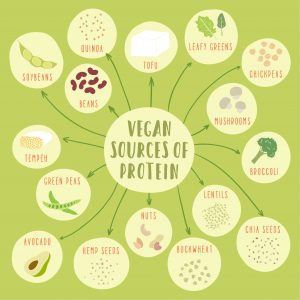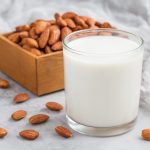plant-based
One of the biggest misconceptions surrounding plant-based diets is that they don’t provide enough protein. This is not true! There are many different protein sources that vegans & vegetarians can enjoy, you just have to know where to look! We’ve put together a list of 10 different plant-based proteins as well as their benefits. So if you know someone who is a vegan/vegetarian & having a hard time finding protein, this is the article for them!
- Quinoa
With twice the amount of protein compared to rice or barley, quinoa is also a very good source of calcium, magnesium and manganese. It also contains good levels of several B vitamins, vitamin E and dietary fiber. Quinoa also makes a fantastic wheat-free choice! Similar to buckwheat, quinoa has an excellent amino acid profile, as it contains all nine essential amino acids making it a complete-protein source. Quinoa has a low glycemic index meaning it can help maintain blood sugars and it is also very rich in antioxidants! - Soy Beans
The key benefits of soy beans are its high protein content, vitamins & insoluble fibers. These beans are very versatile & can be used in a number of ways. Soy beans are source of healthy, unsaturated fat which can help lower overall cholesterol. - Tofu
Tofu is made from soy bean curds (curds are created by the coagulation of soy milk). It is naturally gluten-free, low calorie & contains no cholesterol. It is an excellent source of protein, iron, magnesium & calcium. - Tempeh
Tempeh is similar to tofu in the sense that it is made from soy beans. The one big difference though is that tempeh is made from the actual soy beans rather than the milk. Tempeh is also processed less than tofu therefore making it healthier because it contains more protein & fiber. Also, unlike tofu, it has a much more firm texture. - Beans

Depending on the type of bean, a one cup serving can contain anywhere from 10-15g of protein! Aside from the protein they contain, beans also contain a high amount of fiber! This fiber will help you feel more full throughout the day. They are also high in antioxidants & can help maintain a healthy digestive system if eaten regularly. - Chia Seeds
These seeds may be tiny, but they pack a nutritional punch! In around 2 tablespoons you can add up to 4g of protein to your meal as well as fiber, fats, calcium, manganese & magnesium! You can also use chia seeds as your main protein source in recipes such as chia seed puddings (which are delicious & nutritious, literally!). Chia seeds are also an excellent source of omega-3 fatty acids as well as antioxidants! - Hemp Seeds
For a long time the nutritional benefits of hemp seeds were ignored due to the fact that they come from the same plant as marijuana. A serving of hemp seeds can provide you with not only 10g of protein, but also a healthy dose of fat, carbs, fiber, iron & vitamin E! - Lentils
Lentils are not only a good source of protein but they also contain iron, dietary fiber, copper & many more minerals & vitamins! Lentils also contain a good source of cholesterol lowering fiber! They can also help with the regulation of blood sugar levels!
- Nuts
There are many different varieties of nuts out there, some high in protein, others not. Some of the best nuts from a protein perspective are pumpkin seeds, peanuts, pistachios & almonds! Realistically, all nuts provide health benefits but those 5 contain the most protein per 100g serving. Alongside the protein, nuts are also a great source of fat, essential vitamins & minerals, fiber & antioxidants!
- PROFI Protein
PROFI protein is a blend of several plant-based proteins making it a complete source of protein, ie. it contains all nine essential amino acids! The blend of peas, chickpeas, lentils & brown rice provides 20g of protein per serving! PROFI protein powder is ideal for those on the go because it provides a very easy way for someone to get their protein! It’s also GMO free, allergen free & of course 100% plant-based!







